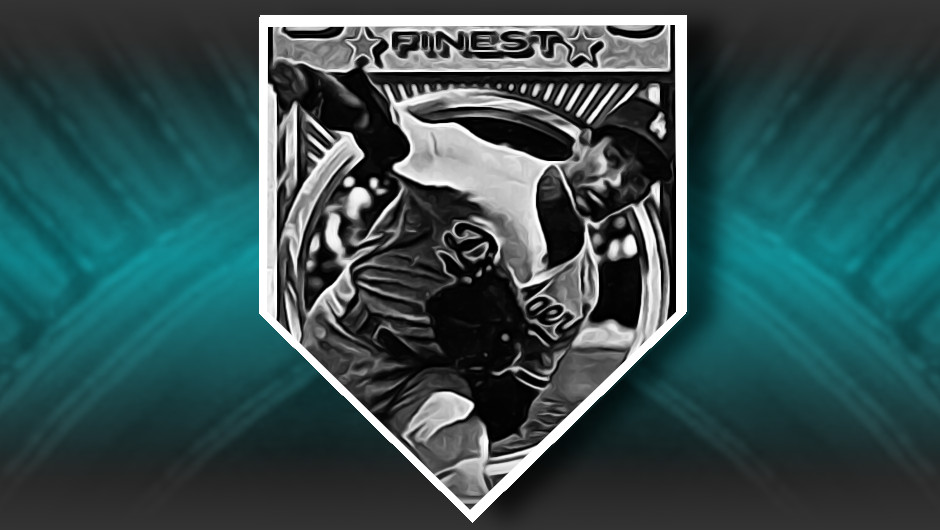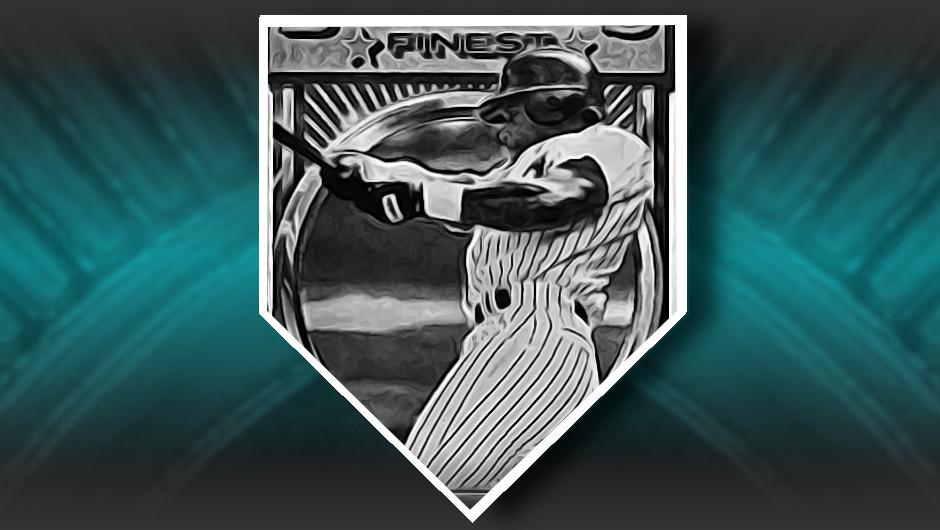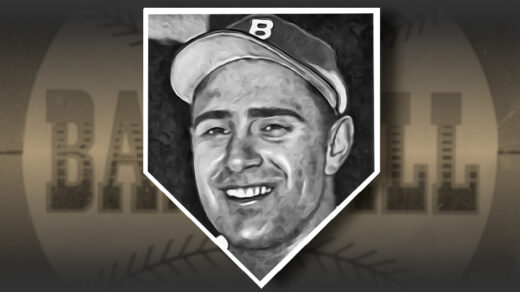Danny Tartabull was born in 1962, the same year his father Jose made his Major League debut and first appeared on a baseball card. Born in Cuba, Jose played for almost a decade with the Athletics and Red Sox while demonstrating little power and driving in 107 runs over the course of his entire career. His son would also join the ranks of Major League outfielders and seemed determined to surpass his father on every quantifiable metric imaginable.
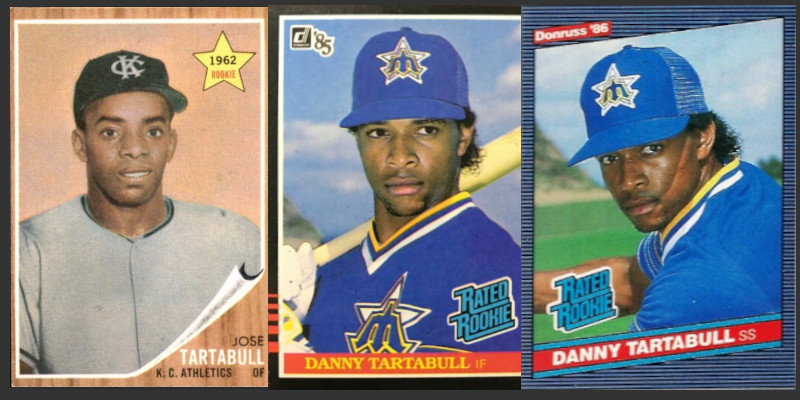
For starters, Jose’s first baseball card was given a star rookie icon by Topps. Danny first appeared in 1985 Donruss as one of the set’s Rated Rookies and followed that up again the next year with another Rated Rookie designation. As far as I can tell he and Sandy Alomar (another baseball son) are the only players to twice get this treatment.
While Jose only sent two baseballs over the outfield wall in a decade, Danny tied that number in his first 10 games. He established himself as a persistent 30 HR/100 RBI threat through the early ’90s. The numbers were even more impressive considering he originally came up to the Mariners as an infield prospect rather than the OF/DH he eventually morphed into. Putting a contemporary perspective on his early years, Danny had similar output to Atlanta’s popular second baseman Ozzie Albies.
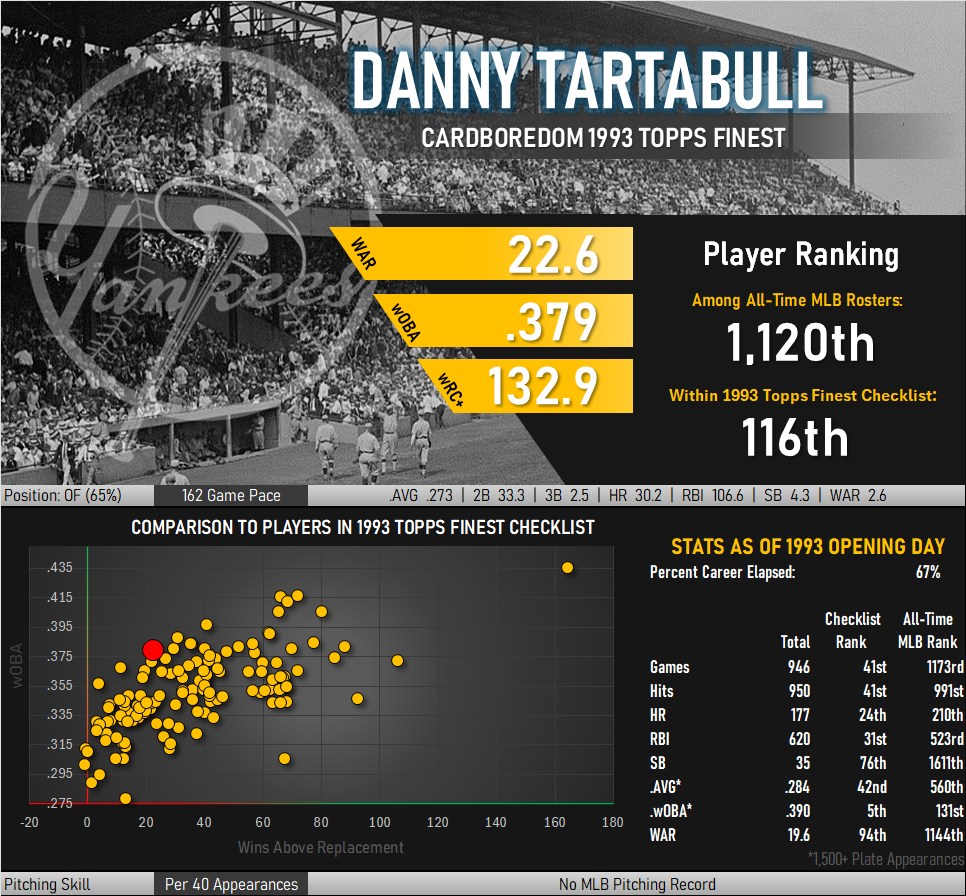
All this offense caught the attention of the deep-pocketed New York Yankees. He began the 1992 season in pinstripes (both on and off the field) and in possession of a $25 million contract. This is significant in terms of how fans would judge his performance, as Barry Bonds publicly held out Tartabull’s agreement as an example of the kind of contract that would keep him happy in Pittsburgh. The Pirates did not make such an offer and Bonds went on to perform a convincing Babe Ruth impersonation in San Francisco. Tartabull’s performance was subsequently hampered by injuries with his full-time output never really progressing beyond what he had already shown. A 30 HR/100 RBI pace is good, but teams in the 1990s had so many more 40+HR players to choose from, many with less onerous price tags.

The financial aspect garnered attention for another reason. Danny’s parents had come from successful pre-revolution backgrounds in Cuba. Financial success had not been as forthcoming in the US and his father’s annual baseball earnings topped out at $23,000. When Danny’s hitting brought bigger contracts in the late ’80s he made up for lost time and spent it. Road trip meals were experiences, his cars were fast, visitors to his home were treated to quality drinks, and spending could be over the top for family and romantic interests.
News reports of his intention to build an expansive residence near Santa Monica brought about questions of just how he was planning to handle this wealth. He purchased a lot near Janet Jackson’s house and was reportedly planning to spend tens of millions developing his property. Considering that he was earning $5 million annually (before some very serious taxes) and obviously not saving the bulk of it, it is unclear just how he planned to go about this. In the end, it appears the house (and planned narrow-gauge garden railroad) were never constructed.
Years later, it was a financial issue that Danny became most associated with. He became a low-level fugitive after failing to make good on a quarter million dollars of child support payments. He accidentally drew attention to himself in 2017 when he called police to report a break-in of his vehicle. Officers entering his name into their records found an outstanding probation violation related to the child support and took him into custody. He became the guy who inadvertantly called the police on himself.



